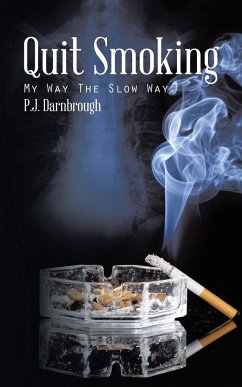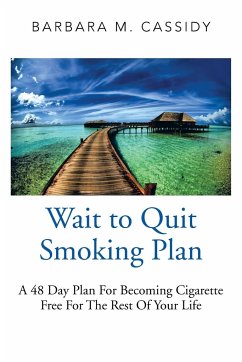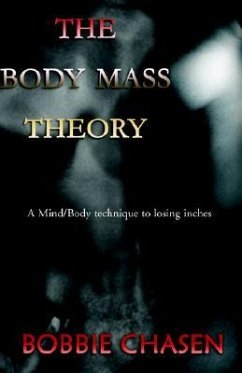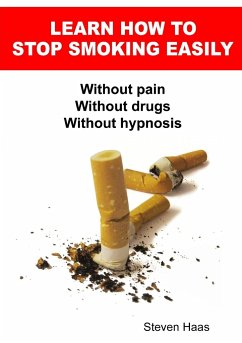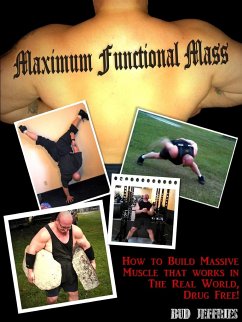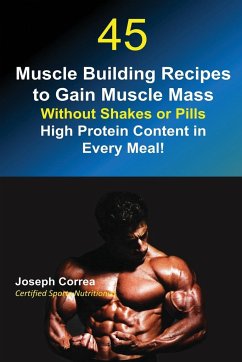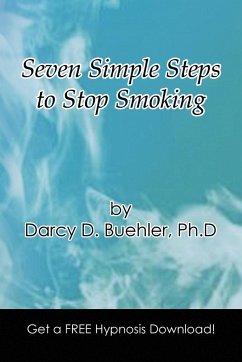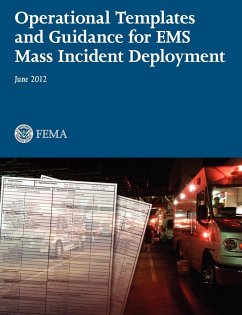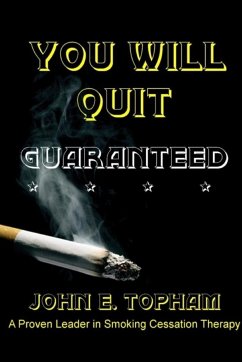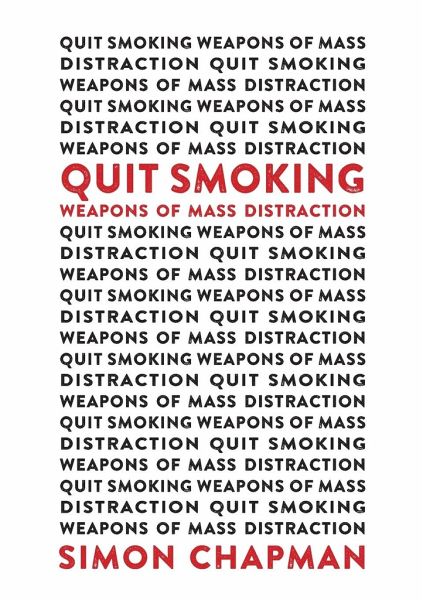
Quit Smoking Weapons of Mass Distraction
Versandkostenfrei!
Versandfertig in 1-2 Wochen
26,99 €
inkl. MwSt.

PAYBACK Punkte
13 °P sammeln!
Who keeps telling smokers they can't quit without help? For decades there have been far more ex-smokers than smokers, and an estimated 75% of smokers quit without drugs or professional help. But smoking cessation is a global phenomenon serviced by multibillion-dollar industries, including the pharmaceutical and e-cigarette sectors and health professionals. These industries try to denigrate unassisted cessation and promote their products and services - "weapons of mass distraction" - as essential to successful quitting. This contributes to the medicalisation of a process that, before these prod...
Who keeps telling smokers they can't quit without help? For decades there have been far more ex-smokers than smokers, and an estimated 75% of smokers quit without drugs or professional help. But smoking cessation is a global phenomenon serviced by multibillion-dollar industries, including the pharmaceutical and e-cigarette sectors and health professionals. These industries try to denigrate unassisted cessation and promote their products and services - "weapons of mass distraction" - as essential to successful quitting. This contributes to the medicalisation of a process that, before these products were available, had a natural history where drugs and expertise were absent, yet millions of people around the world still quit. Simon Chapman AO is one of Australia's foremost experts on strategies to minimise harm from tobacco. In Quit Smoking Weapons of Mass Distraction, he reviews the early history of quitting smoking and the rise of assisted quitting, and gives insight into the forces that have tried to undermine smokers' agency to stop. Chapman also provides actionable policy solutions to help people actually quit smoking.



